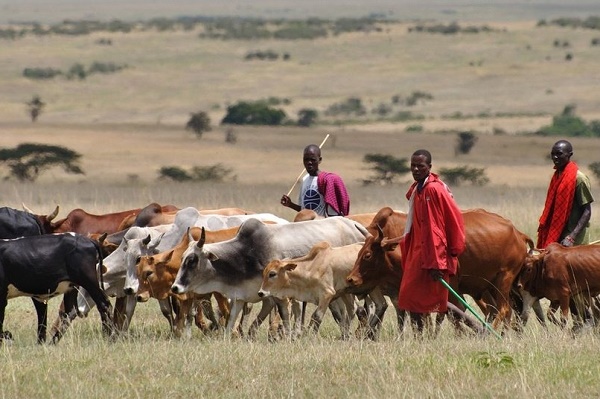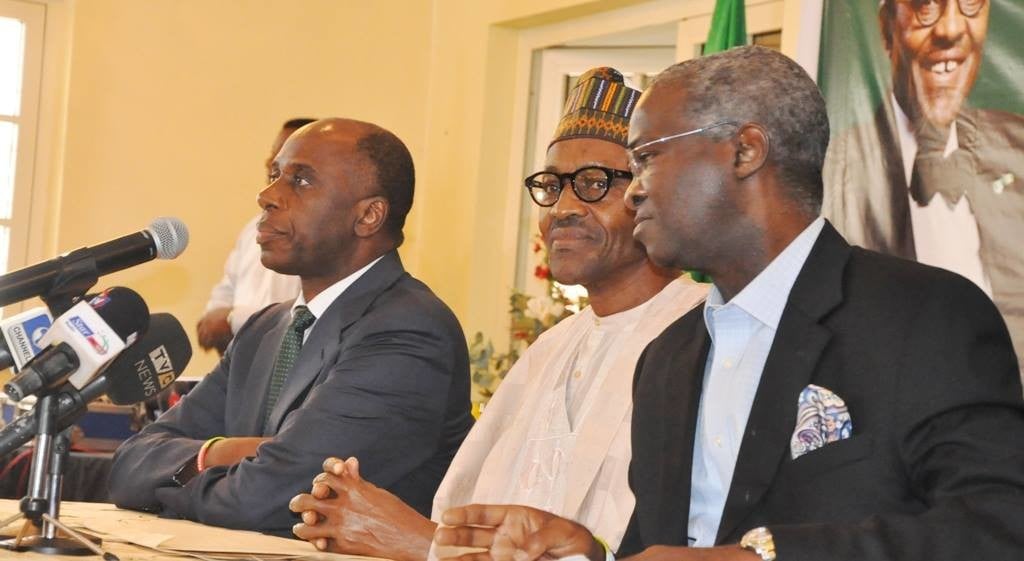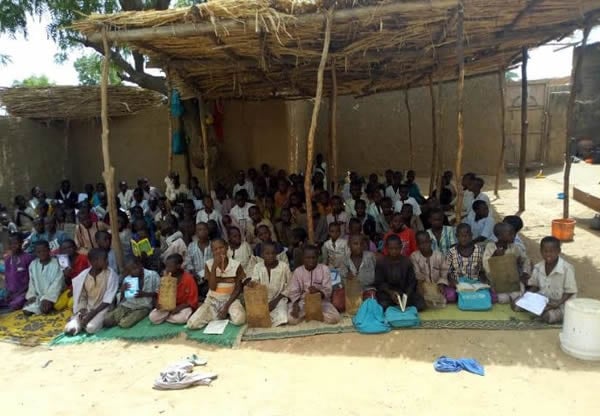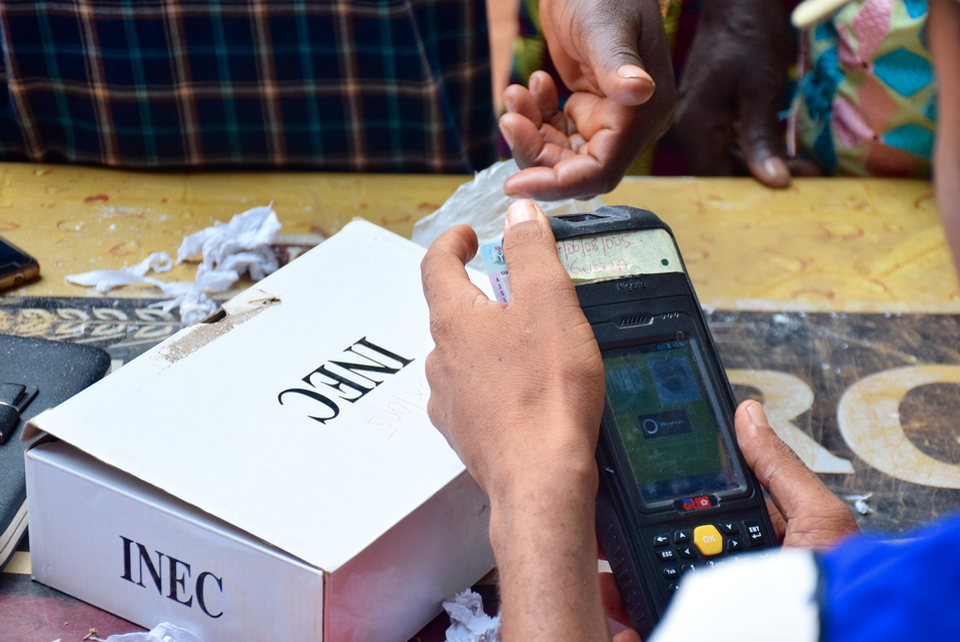'Its either greed or plain agenda' -- Reactions trail FG's Ruga settlement
BY MIRIAM SHEHU
On Sunday 21st July, 2019, President Muhammadu Buhari condemned the killing of 37 people by suspected bandits in Sokoto State. “This frequent and large scale killings of poor villagers by gangs of mass murderers must be met with the fiercest force the government can mobilize,” President Buhari said in a statement by his spokesman Garba Shehu.
Premium Times reports that no fewer than 72 people were killed in different violent attacks across Nigeria same week with another 32 people kidnapped during the period. The number of victims killed increased from the 16 deaths recorded the previous week while the number of kidnapped victims also increased according to the report.
The rising wave of banditry amid high-profile kidnappings nationwide, herdsmen attacks and the war against insurgency has steadily become a signature of Nigeria’s worsening security crisis.The death count is alarming.
Let’s take a closer look at the numbers, beginning with the Boko Haram insurgency. According to the Council on Foreign Relations (CFR), an independent, non-partisan organization and think tank based in the United States, Boko Haram has been responsible for the death of 16,533 civilians between 2011 and June 2019. Within this period, 2,877 state actors including soldiers, Policemen, Civil Defense Corps and Vigilante groups lost their lives as well. On the side of the insurgents, 15,915 were killed during this period. As at June 2019, 35,325 deaths have been recorded. These deaths are predominantly in the northeastern states of Borno, Adamawa, Yobe, and Taraba. There were also deaths recorded in Niger, Abuja, Kaduna and Bauchi at several points within the years in question.
Advertisement
But it gets worse. In the first half of 2018, more than 1,300 Nigerians have died in escalating conflict between herdsmen and farmers. The crisis is now claiming about six times more civilian lives than the Boko Haram insurgency, according to a report by the International Crisis Group (ICG).
“Since the violence escalated in January 2018, an estimated 300,000 people have fled their homes. Large-scale displacement and insecurity in parts of Adamawa, Benue, Nasarawa, Plateau and Taraba states hinder farming as well as herding and drive up food prices. The violence exacts a heavy burden on the military, police and other security services, distracting them from other important missions, such as countering the Boko Haram insurgency”, the ICG observed in its report.
Meanwhile, a report by Global Index revealed that the herdsmen crisis, which went up another notch in the last three years has led to a 300% increase in deaths. Between 2010 and 2013, there were just 80 deaths as a result of herdsmen-farmer but it has been on the rise since then. Deaths rose to 1,229 in 2014. By 2016, the crisis had taken a new twist with reports of herdsmen attacking villages and communities in several parts of the country, from Southern Kaduna down to the South Eastern state of Enugu. In 2016 alone, 4,940 people lost their lives. The bloodshed continued in 2017 with a total of 1,832 deaths and 1,700 in 2018.
Advertisement
In the wake of the Boko Haram insurgency and escalating tensions between herdsmen and farmers, a new monster has now reared its head, donning the toga of ‘banditry’. The CFR reports that death as a result of banditry skyrocketed from below 20 in 2013 to well over 200 in 2019. The total death as a result of banditry in Zamfara was 27 as at June 2012 but then in 2013, it increased to 62 people. 258 died in 2014 while no death was recorded in 2015. In 2016, the violence continued with 75 people losing their lives, this increased to 121 in 2017 and then 41 in 2018. The recent killings recorded in the past few weeks project grimmer statistics by the end of 2019.
To put all of these statistics in perspective, Northern Nigeria is the worst hit and the implications are far-reaching. For decades, poverty in the North has been mostly associated to factors such as illiteracy, cultural attitudes to prosperity, corruption, bad governance, child destitution (like almajiranci, begging), socio-economic inequality, ethnic clashes and poor economic leadership. But as it stands today, the biggest threat to the North’s economic prosperity is insecurity.
The activities of insurgents, bandits and the crisis between herders and farmers have devastated the North in more ways than can be imagined. Agriculture which is traditionally the main economic activity in the North is in tatters. The incentive for local and foreign investors in the North is shrinking as bandits continue to terrorise innocent citizens, disrupting economic activities. The consequences are frightening. If the North cannot cultivate the food it eats, starvation is inevitable. If the safety of investors in the North is not guaranteed, the future of the region is nothing short of bleak. The way forward is for the North to brace up to its challenges and find the solutions to its own problems.
Politically, the North has had a good rein on governance since independence. The North has produced more presidents and heads of state than any other region in Nigeria. While this has not accounted for much in terms of the development of the region, today’s reality of a Northern President presents the North and by extension, the entire nation, an opportunity for policy redirection.
Advertisement
Over the years, varied solutions have been advanced for Nigeria’s multi-pronged security challenges. While it is not the intention of this article to regurgitate some of these solutions which are already in the public domain, enriching conversations around the recurrent herders-farmers crisis by advancing fresh insights is imperative.
It is clear that an ill-thought RUGA cattle settlement policy that has generated so much ethnic tensions is not the answer. The Muhammadu Buhari led Federal Government of Nigeria must now think out of the box. A better and long-term solution is to pass a law on compulsory ranching for cattle breeders. What this means is that cattle have to be raised and fed on private premises and lands owned by cattle breeders. These cattle should not be allowed to move around freely except on these private lands. Such legislation must factor in the dynamics and modern realities of cattle ranching using international best practices.
For example, the United States is the world’s largest producer of beef, followed by Brazil and the European Union. How are they doing it successfully without the crisis we are now facing in Nigeria? Are cattle allowed to graze across open lands in those parts of the world without any restrictions? Certainly not. Cattle ranches exist for this purpose. But how do large herds of cattle survive and thrive in these ranches? Ranch owners depend largely on feedlots but are increasingly adopting innovative methods like rotational grazing which is the practice of shifting livestock to different units of a pasture or range in regular sequence to permit the recovery and growth of the pasture plants after grazing.
For Nigeria at this time, a legislation for compulsory cattle ranching will have to ensure the importation or produce of fodder locally here in Nigeria. This is in addition to consistent rotational grazing practices in ranches. The government in partnership with private businesses can develop the cattle fodder industry. It is a big business on its own and farmers across the country can be incentivised to grow this industry – a win win for all sides. A good African example is Sudan which now grows ‘alfalfa hay’ for livestock in commercial quantities for export to other parts of the Middle East.
Advertisement
A flipside to this arrangement is the challenge that comes with a regulated cattle ranching system that eventually ensures that only those who can really afford to do the business venture into it. Some will be quick to argue that in the past, this was not the case as local Fulani cattle breeders could easily herd their cattle freely across the length and breadth of the country without the concerns that come with land acquisition for cattle ranching. But the truth is; in that past, climate change was not an issue as we know it today. Grazing lands are disappearing amid rising ethnic conflicts which have forced Fulanis to migrate across the Sahel away from their their home countries. This was not the case in the past. As the world changes, we must change with it and adjust to its prevailing realities. Anything outside this is unsustainable and an invitation to the chaos and bloodshed we have witnessed in recent times.
For the North, what is clear at this point is that insecurity is a major setback to development in the region. By embracing innovative solutions to the herders-farmers conflict, Nigeria would have solved its security challenges by half. In essence, a secure Northern Nigeria is central to development in the North and by extension peace and prosperity across Nigeria.
Advertisement
Miriam Shehu writes from Abuja and tweets at @MiriamShehu
Advertisement
Views expressed by contributors are strictly personal and not of TheCable.
Add a comment






